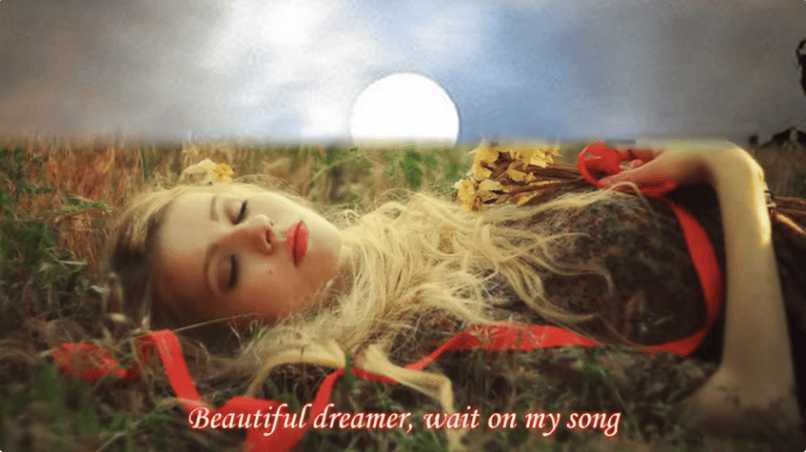Dreaming Together, Waking Into a New World
Living real life with other beautiful and functional dreamers

You've likely heard the phrase "I think, therefore I am." It comes from the philosopher René Descartes who began using it in 1637. People tracing intellectual history often identify this as a key moment that kicked off the rationalist revolution known as the Enlightenment.
Descartes was supposing, for the sake of argument, that an evil demon could cause him to hallucinate all of his experiences. That's a 17th-century way of saying: What if everything's a simulation? Yet the one thing he knew for sure, he insisted, was that he was thinking, which meant that he himself existed even if the external world didn't. He thought "I exist" was a good starting place for his philosophy.
Film critic Lady Horatia refers to Descartes's principle, expanding it to its fuller context: "I doubt, therefore I think, therefore I am." Horatia says:
Descartes believed that the senses were deceiving us, therefore we could not trust them to understand — let alone perceive — reality. And so if the senses could not be trusted, nothing could be trusted. Everything could be false, and nothing could be real.
Again, for Descartes, this raised the question of how we can know whether anyone or anything is real. If our senses are "lying to us," then
how can we know we are real and not just dreaming? Descartes argues that since we can doubt our senses we are therefore capable of thought, and if we are capable of thought, we therefore are. It’s a pretty straightforward philosophy.
Straightforward, but wrong, Lady Horatia says.
The moment I read this, I realized that one wing of the anti-trans movement may be Cartesian in this respect.
Here's a big hint that they are. In 2022, anti-trans writer Helen Joyce referenced the Enlightenment. She claimed that transness (i.e., our trans existence, others' acceptance of us, and so on) threatens
all of civilization, actually. This is the Enlightenment we’re talking about here. We’re talking about evidence, we’re talking about meaning, we’re talking about words having stable meanings, we’re talking about how you do medicine, how you do science...[Acknowledging that people are trans and accepting their gender is] an attack on reality...a profound assault — on everything.
The term she used, by the way, was "gender fuckery." In her worldview, trans people undermine the Enlightenment, and that which is anti-Enlightenment is evil demon gender fuckery.
I suppose her impulse can (to discuss it most charitably) be seen as Cartesian: to want a certain kind of stability and certainty, one that begins with an allegedly indisputable kernel like I think, therefore I am — for her, that statement is people can't change their sex — from which all other meaning-making is to progress in an orderly fashion.
Anti-trans discourse manufactures doubt about trans people
What anti-trans people doubt is:
- Trans people's feelings and senses of self
- Trans people's ways of living
- Trans people's factual claims about what we've witnessed
- Cis people's willingness and ability to coexist with trans people, and vice versa
- Institutions' capacity to legitimize transness
- Various meanings and interpretations of the concept of transness
- Their own gender identities and sexual desires
Anti-trans discourse continually affirms these doubts. By doing so, it reinforces the Cartesian conclusion that the person who is doing the doubting is real. An anti-trans speaker reaffirms their own existence by feeling their own doubt and hearing themselves airing it. That's why they insist on creating their own media which they claim is devoted to "asking questions" about trans people yet rarely involves trans participants. Within this philosophical framework, doubt is an existential activity through which they reaffirm their being. What they doubt is, primarily, trans people. That's the focal point they've chosen for their doubt. Thus they'll only dialogue with people (cis or trans) who affirm the crucial importance of anti-trans doubt.
The consequences are serious. First of all, it's bad for trans people. Doubting the validity of someone else's identity is a supremacist way of thinking, and relentlessly expressing that skepticism will result in targets being placed on their backs.
But also, it's bad for the cis people who do this. Believing something false about trans people means they'll misunderstand themselves too. Their peculiar construction of transness must imply a corresponding construction of cisness, yet they refuse to acknowledge any of this, insisting that they are observing elementary building blocks of reality (based on bodies and incontrovertible logic) rather than constructing ideas about gender.
Together, we create that which can be known about each other
Lady Horatia suggests that Cartesian self-understanding amounts to looking at our own face in a mirror ("a shallow, flat, cracked reflection of nothing"). In that vision,
individuals are so fragmented and atomized that we cannot even see each other anymore.
We do not even exist anymore. We have disappeared from each other.
A better self-recognition, Horatia says, occurs in our co-evolution:
The self that you are can only exist because of another. An individual is not born by itself. An individual doesn’t grow by itself. Therefore an individual cannot form thoughts by itself. The words that Descartes used to define himself came from somewhere. The concepts came from somewhere.
"At first," perhaps, when we are contemplating in the way philosophers do, "we see only ourselves. But what then do we find coming up behind us? The other."
It seems to me that, not only do we share information with each other, but we co-create realities from which information can be gleaned. The question is not only Who wrote the book from which you learned that? The question is also Who lived in the society in which something happened and about which a book was written?
Others may be able to confirm you're a butterfly
Lady Horatia brings up Zhuangzi's classic "butterfly dream" problem, which is about two thousand years older than Descartes's meditations. Given that you can dream you're a butterfly, who's to say you aren't right now a butterfly dreaming you're a person?
This possibility fiddles with Descartes' dictum "I think, therefore I am." Maybe he's not a man who thinks, after all, but a butterfly who dreams.
Indulging a moment of radical self-skepticism, I may suppose that my senses are untrustworthy: I may be a butterfly, or I may be a person. About any given fact, my senses may give me incorrect or correct information. Here, I'm not supposing that my senses always lie to me. I'm only supposing that it's hard for me to be certain.
Lady Horatia turns to the Bantu philosophy of ubuntu: "I am because we are." It's fair for each of us to hold factual beliefs "because there are other people there to confirm what our senses tell us." I'm here now, with everyone else who is here too, sharing the same world. As we confirm each other's factual perceptions and interpretations, the group narrative is spun together. And the ethical conclusion must be that, "since the ‘I’ can only exist with the other, you must ensure that the other lives. For if the other stops existing you stop existing as well."
A typical anti-trans claim is that I (a trans person) am just a person dreaming I'm a butterfly and that I ought to snap out of it.
But this is their attempt to erase what they see as an undesirable narrative and not only to replace it with their own narrative but also to seize control of who will be allowed to participate in future co-narrations.
Perhaps — to dwell within this allegory — I never claimed that I was, precisely, a butterfly nor that I was not a person. Their objection is therefore off-track and inapplicable. Maybe I said something about being a sort-of butterfly and a full person at the same time. Maybe I said nothing at all and simply lived, thereby demonstrating whatever is to be learned from my embodiment, my actions, my presence, or what I leave behind.
They would have to observe quietly for a moment before they complained.
Acknowledging and accepting my being would help them more fully understand what they observed.
Or maybe I did say I'm a person dreaming I'm a butterfly. The difference between saying this in a trans way and an anti-trans way is through the recognition that dreams can be beautiful and even functional ways of living in the world alongside other beautiful and functional dreamers.

And while some people, choosing to be anti-trans and to reject transness itself, may deny whatever a trans person says, plenty of others will affirm trans people's understandings because the same set of facts, interpretations, and behaviors generally make sense to them too. The knowledge base isn't purely trans or cis: it's shared. Facts about a trans person are facts about a shared society. She lives as a woman and is a woman! He lives as a man and is a man! They live in their own way and it's legible and beautiful to others! Cis–trans interactions are a skill that trans and cis people develop together.
Whatever is the opposite of a dream would not necessarily be better for the dreamer nor for everyone around them. Dreams are the syrup of creativity and often contain the desire for a better world. Of course we want to live the dream and help everyone else to live it too.
The song lyrics written a century and a half ago:
Beautiful dreamer, wake unto me,
Starlight and dewdrops are waiting for thee;
Sounds of the rude world, heard in the day,
Lull'd by the moonlight have all passed away!
Sometimes we wake unto another person who is dreaming with us. We dream together and wake into a new world.
Of course there are people who want to stop us.
But those who collaborate will know we are not deceiving each other with paper-thin simulations. We are building something real together.


